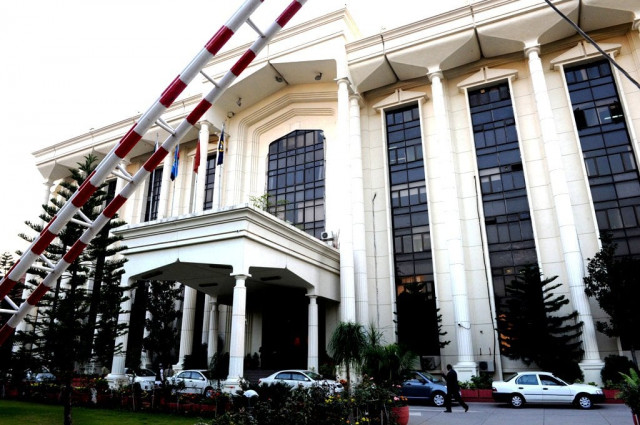Panama Papers revelations: 400 cases assigned to pressure-prone FBR staff
Shifting of cases from FBR HQ to ‘inexperienced’ field formations raises eyebrows

PHOTO: AFP
The decision shows that the federal government has receded from its ‘principled position’ taken a year ago to keep these cases in the FBR headquarters in order to ensure swift progress.
The tax authorities have withdrawn the Panama and Bahamas leaks cases from FBR’s Directorate General of Intelligence and Investigation, which is stationed at its headquarters, according to sources in the FBR. The cases have now been handed over to the prone-to-pressure field formations of the board, which fall under the domain of its Member Inland Revenue (Operations).
Panamagate judgement leaves Ishaq Dar in tight spot
The FBR decision to decentralise investigations over the Panama Leaks cases strengthens the stance of the tax and legal consultants hired by people named in the leaks.
The FBR had served tax notices on hundreds of people named in the leaks and owning offshore companies. The notices had been served under Section 176 of the Income Tax Ordinance which empowers tax officials to seek information about any transaction.
However, at that time, AF Ferguson & Co senior partner Syed Shabbar Zaidi had claimed that the nature of the tax notice did not fall under Section 176 and the notices should have been served under Section 111 or Section 122(5) of the income tax law. Theoretically, the notices should have been issued by the FBR’s respective field formations, Zaidi had said last year.
Defamation suit against Imran on the cards
In April last year, the International Consortium of Investigative Journalists published a fraction of data leaked under the Panama Papers investigation, naming about 640 Pakistanis as beneficiaries of offshore holdings. Of these, 155 had been identified by the Securities and Exchange Commission of Pakistan, owning 600 companies in the country.
The FBR had served notices only after the Pakistan Tehreek-e-Insaf launched a countrywide campaign against the government over corruption and delay in action against those named in the Panama Papers. Prime Minister Nawaz Sharif and his family members have been named in the leaks.
Sources said the FBR was reluctant from day one to take any meaningful action. There are fears that this issue might be buried like 50 other high-profile cases of politicians, including the Punjab chief minister. These politicians had been picked for audit.
Panama Papers exposé wins Pulitzer Prize
In its judgment on the Panamagate case, the Supreme Court has already criticised the FBR for its ‘half-hearted’ attempts on the matter. The FBR took the stance that it had taken immediate cognizance of the matter and issued notices to the people whose names had appeared in the Panama Papers case.
“This immediate cognizance translated in half-hearted issuance of some notices six months after the information came into the public domain which speaks volumes about the lethargy, carelessness and inefficiency displayed by the premium tax and financial watchdog of the country,” according to the judgment.
However, the FBR officials defended the decision to send these cases to the field formations. The Directorate General of Intelligence and Investigation does not have the powers to open wealth statements filed under Section 116 of the Income Tax Ordinance, said the FBR officials. It also lacked powers to ask people to file their income tax returns, they added.
Panamagate verdict: SC picks out JIT to probe Sharifs’ offshore business
According to the officials, the directorate also does not have powers to ensure recoveries in cases where it has pointed out flaws. Recovering the due amount then becomes the responsibility of the field formations of the FBR.
Because of these reasons, the cases had been shifted to field formations, they said, adding that presently, the Large Taxpayer Unit in Karachi was conducting audit in 39 cases, but to no recovery as yet.
The FBR’s directorate is working with only one-third of its total sanctioned strength, which indicates that going after tax-evaders is not the priority of the federal government.
Panamagate judgment: No disqualification but JIT to probe PM, sons
The FBR officials also defended the directorate’s performance on the grounds that it played a major role in identifying persons named in the Panama and Bahmas leaks. The FBR officials said recovery under the fiscal laws was very difficult.



















COMMENTS
Comments are moderated and generally will be posted if they are on-topic and not abusive.
For more information, please see our Comments FAQ